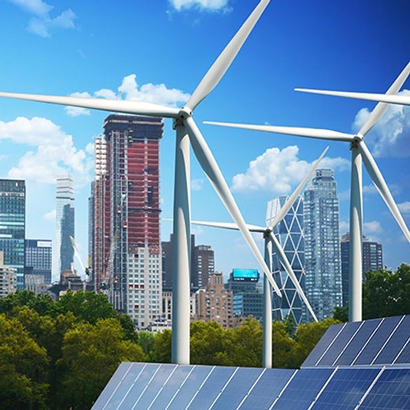Younger investors are increasingly mobilizing their money for social and environmental good, which can have ripple effects for years to come.
For whatever reason, the media sometimes seems fixated on the Millennial generation: what Millennials like to buy, how they use technology, what motivates them. But one major theme to emerge is that Millennials tend to be more socially and environmentally conscious than their parents, from choosing sustainable products to pushing companies to take a stand on social issues.
But even more important than the impact of their shopping habits could be their investment dollars.
In 2017, Morgan Stanley’s Institute for Sustainable Investing surveyed active individual investors and found that 86% of Millennials are interested in sustainable investing, or investing in companies or funds that aim to generate market-rate financial returns, while pursuing positive social and/or environmental impact. Millennials are twice as likely as the overall investor population to invest in companies targeting social or environmental goals. And 90% of them say they want sustainable investing as an option within their 401(k) plans.
This isn’t just a stray observation. As Baby Boomers age and begin to pass down money to their Generational X and Millennial descendants, it will be the largest intergenerational wealth transfer in history, with $30 trillion set to change hands over the next few decades. As Millennials grow their wealth through earnings and inheritance, I expect that sustainable investing will only continue to grow as part of the investing landscape.
Power of Skepticism?
This huge mobilization means that Millennials’ social and environmental preferences can create real, meaningful differences that echo throughout the economy—and the world. They know it, too: 75% of Millennials believe that their investments can influence climate change; 84% believe that their investments have the power to help lift people out of poverty.
Where does this social consciousness come from?
Perhaps the Great Recession was to blame, but Millennials tend to be less affiliated with formal institutions, including a distrust of the media and organized religion. They tend to lack confidence in government, the justice system, and corporations, too. This skepticism may be responsible, at least in part, for their desire to hold companies accountable, rather than assuming that various institutions are acting in the public good.
Pair that with their belief that they have the power to bring about change and it makes sense that some members of this generation may feel that positive social change rests on their shoulders.
Not Just a Millennial Phenomenon
First of all, Millennials aren’t an entirely exotic breed. In general, consumers today seem more environmentally and socially conscious than in the past. A 2017 study from PR and marketing firm Cone Communications finds that 87% of U.S. consumers would purchase from a company because they advocate for an issue of shared concern. And more than three out of four (76%) would boycott a company they found to support an issue at odds with their values.
Millennials aren’t the only young consumers driving these behavioral patterns. We don’t yet know quite as much about the investing behaviors of Generation Z, the generation behind Millennials. But their consumer behavior so far implies that they’re also strongly committed to social values and sustainability. In 2017, Cone also looked at Generation Z and found that 94% of this generation believes that companies should help address social and environmental issues, compared to 87% of Millennials and 86% of the general population.
According to the Institute’s study, across all age groups, 75% of active individual investors say they’re interested in sustainable investing, and 80% say they’d be more likely to adopt sustainable investing if they were able to tailor the impact that their dollars have on the causes they care about. Anecdotally, I’ve heard more and more investors expressing an interest in climate change—including both Investment Banking institutional clients and Wealth Management individual clients.
Sustainable Investing’s Staying Power
In part, I think that the growing body of analysis on how sustainable investing can potentially yield equal or higher returns than more traditional investments has generated explosive growth of interest in this kind of investing. In some cases, investing through the lens of sustainability and social impact might actually help reduce volatility. For example, Morgan Stanley Research found this to be true when it comes to corporate workplace gender diversity; companies with the most gender diversity tended to have slightly better equity returns and lower volatility when it comes to return on equity.
In the end, aligning your social and environment convictions with your investments doesn’t have to mean a tradeoff in earnings—in fact, it might even mean the opposite. As younger investors pave the way, we can see clearly how mobilizing investing dollars has the power to influence real social and environmental change throughout the world for all investors.




